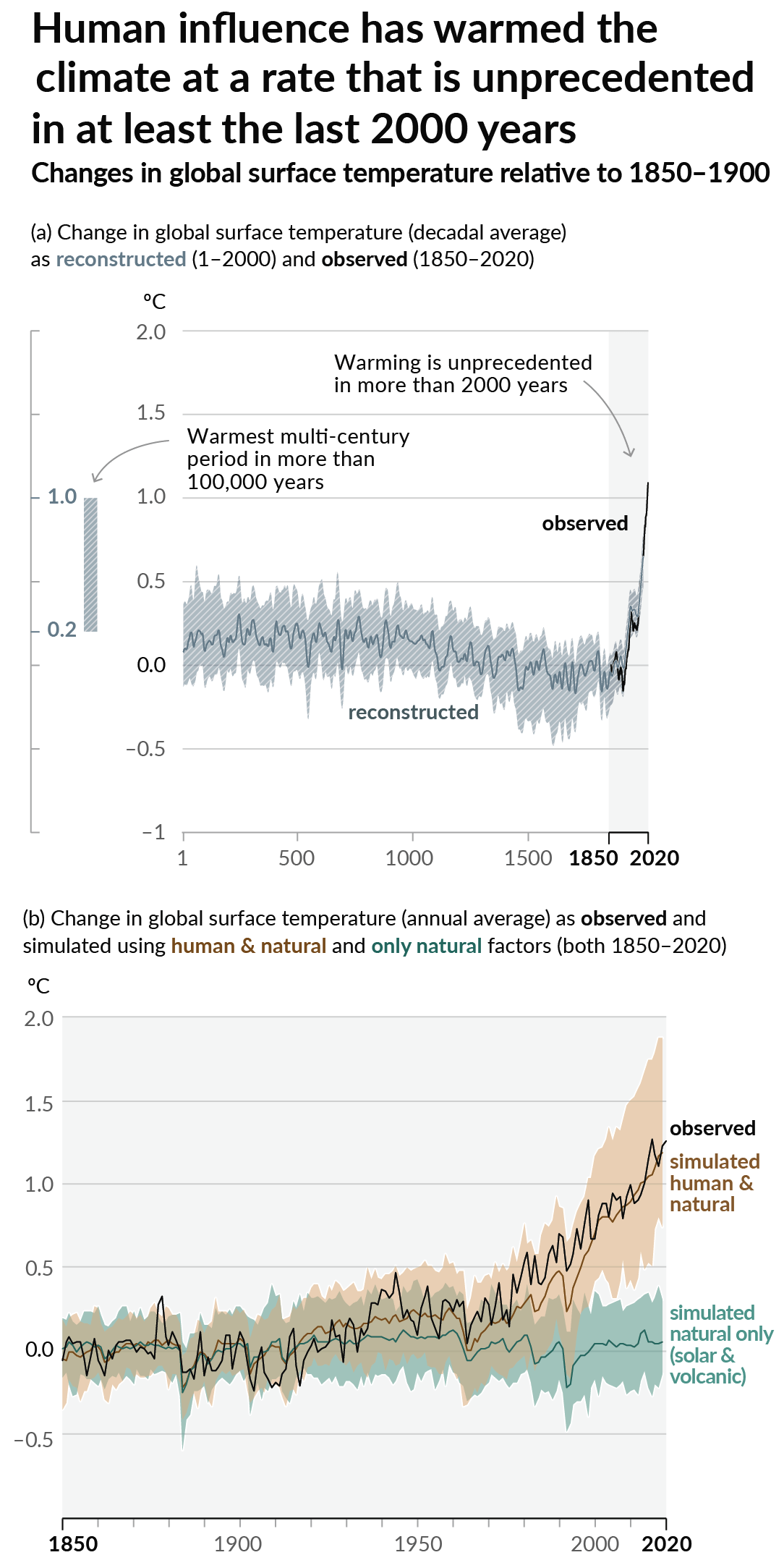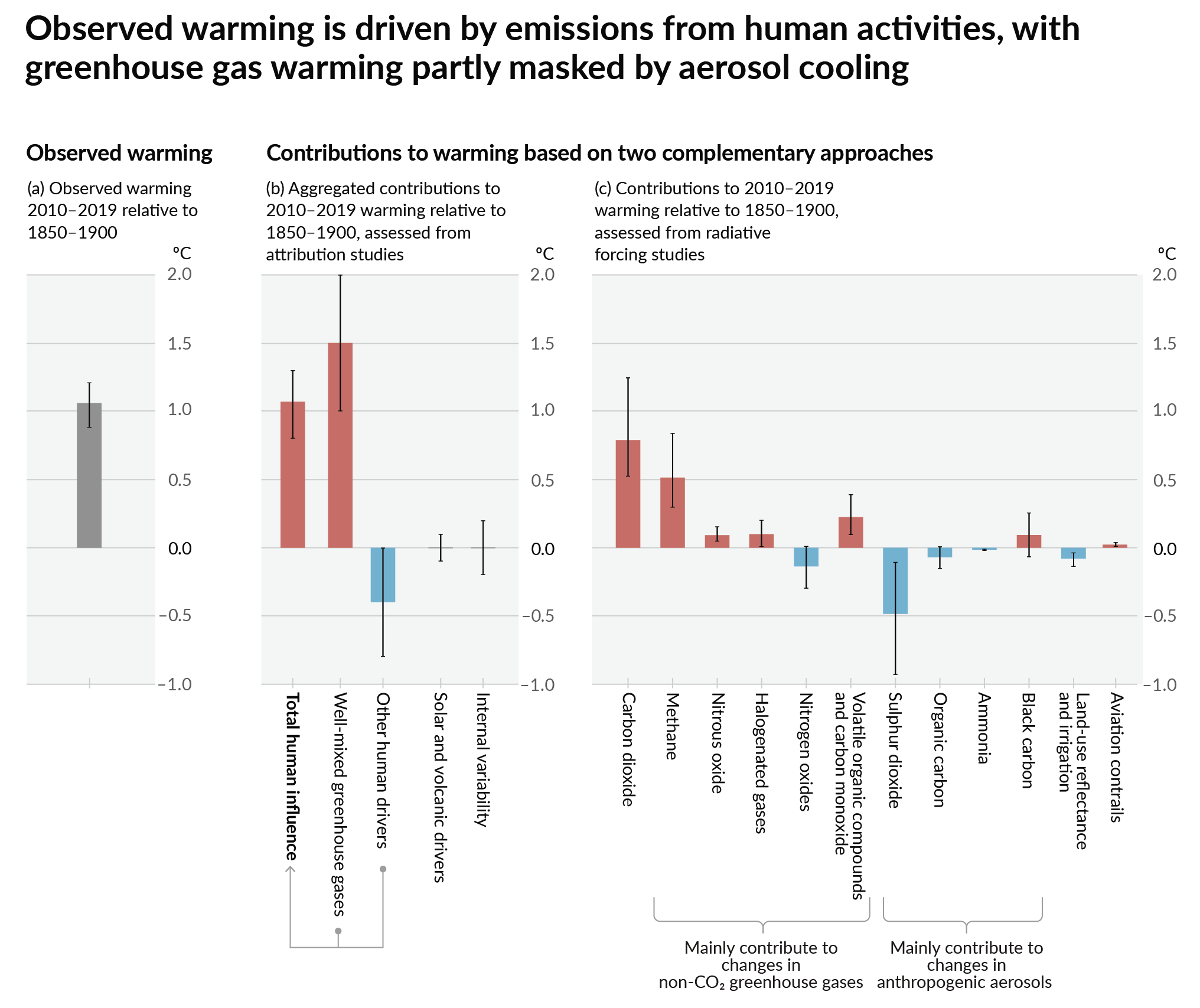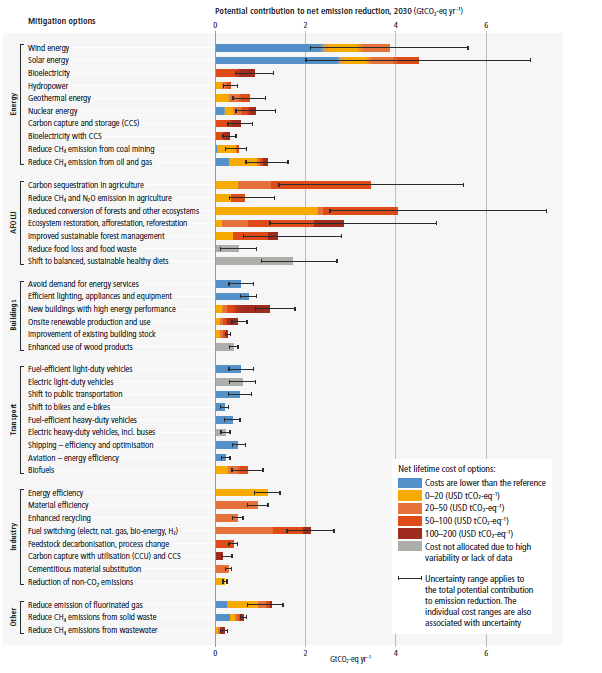284
Eat Less Meat Is Message for Rich World in Food’s First Net Zero Plan
(finance.yahoo.com)
Discussion of climate, how it is changing, activism around that, the politics, and the energy systems change we need in order to stabilize things.
As a starting point, the burning of fossil fuels, and to a lesser extent deforestation and release of methane are responsible for the warming in recent decades:

How much each change to the atmosphere has warmed the world:

Recommended actions to cut greenhouse gas emissions in the near future:

Anti-science, inactivism, and unsupported conspiracy theories are not ok here.
About half of the emissions from cattle are from methane; methane has about 80x the warming impact over 20 years that CO2 has.
Beyond that, cattle are slaughtered at 1 to 2 years old, while meat chickens are slaughtered at around 2 months. Cattle have worse feed conversion rates because they live longer.
as I said above, it's almost impossible to actually quantify the effects of any agricultural activity due to the interdependencies and variances in the industry. show me the source for you "half of the emissions" claim, and I'll show you a flawed methodology and a counterexample to the claim.
The half of emissions that are methane are the cow burps themselves, because their stomachs ferment grass and produce methane as a waste product.
Even if you want to quibble about the accounting of the other half, without cows grazing there would be way, way less methane produced.
you're just restating your case. I asked for a citation.
According to https://www.mdpi.com/2076-2615/2/2/127/htm conventional feedlot beef produces 501,593 kg of methane per 1 million kg of beef, mostly from both burps and composting manure. So that's about .5 kg of methane per kg of beef.
1 lb of methane is 84 kg CO2e; that is to say over 100 years 1 kg of methane warms the planet the same as releasing 84kg of CO2. So every kg of beef produces 42kg of CO2e, regardless of any quibbling about the CO2e of agricultural waste fed to cows.
By contrast, googling quickly the quoted CO2e emissions per kg of chicken is 18.2. Which is, of course, subject to the same quibbling.
i will be digging into the methodology in a little while, but I found this part of the summary might indicate it's not as bad as it is sometimes made out to be.
feed conversion is often a meaningless metric for ruminants, which can graze for all of their necessary calories.